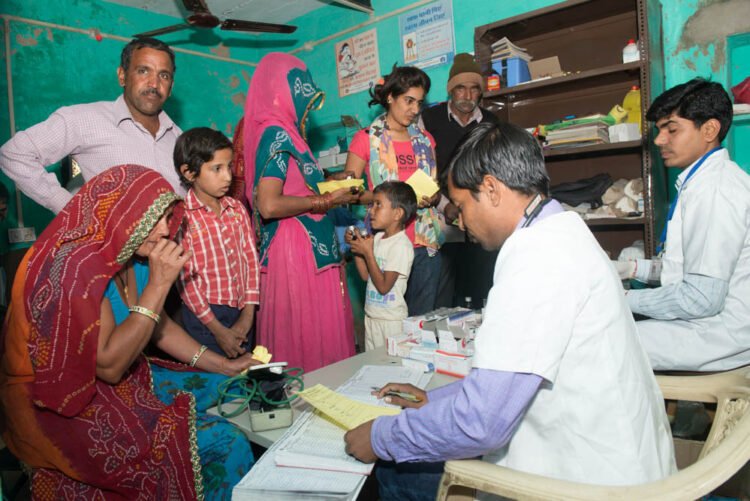New Delhi – ASARA, a Piramal Swasthya project has achieved and maintained zero maternal deaths between 2017 and 2019 in 181 tribal habitations in Vishakhapatnam’s Araku Valley, where the programme originally started, Vishal Phanse, Chief Executive Officer (CEO), Piramal Swasthya, told India CSR.
Piramal Swasthya is the healthcare initiative of Piramal Group‘s philanthropic arm – Piramal Foundation,
ASARA significantly contributes towards ending preventable maternal deaths for reproductive mother in tribal regions of Andhra Pradesh.
Piramal Swasthya has been able to institutionalise over 68% of the deliveries in these habitations. The valley is one of the most vulnerable regions in the state of Andhra Pradesh and is infamous for high maternal morbidity and mortality rate among the tribal women in the region, Phanse said.
Thanks to its programme – ASARA – launched in 2011.
ASARA which covered 181 tribal habitations when it was started, has now been expanded to 720 habitations in its sixth year of operation.
In this expansion process, Piramal Swasthya’s learning and best practices across the country by innovators, NGOs and Government officials are being incorporated and is now benefiting communities in 720 habitations across 6 Mandals of tribal belt of Vishakhapatnam district, Phanse said.
The challenge for Piramal Swasthya was to overcome acute malnutrition, which was one of the primary reasons of anaemia and is critical for maternal mortality ratio. For every 100,000 births, 400 women died. Additionally, neo-natal mortality rate was as high as 60 deaths for every 1,000 births, till 2011.
Neonatal mortality rate is the probability of dying during the first 28 days of life, expressed per 1,000 live births.
Meanwhile, there were only 18% institutional deliveries till then.
The current programme, ASARA 2.0, is an expansion of this successfully implemented model. The expansion aims to cover over 250,000 lakh people, including women, children and adolescents in 1179 hard-to-reach habitations across the 11 mandals of the entire tribal belt of the district.
“The convergence between the relevant ministries at the local level and the trust of the communities was pivotal in the journey of improving not just health indicator but the overall health seeking behaviour of the communities” Phanse mentioned.
“Piramal Swasthya is also working on similar models for diabetes, hypertension and cancer. In Assam, Piramal Swasthya runs another innovative program called D.E.S.H. (Detect Early & Save Her) programme for oral, breast and cervical cancers”, Phanse said.
Cancer is one of the leading causes of mortality and morbidity worldwide. In India, Cancer burden is high and is projected to increase over one-and-a-half times in the next 20 years. Within India, Assam has the highest proportional mortality ratio due to cancer. Kamrup is the district with the 4th highest incidence of cancer-afflicted persons in India, according to the population-based cancer registry report (2012-14). States in the North-eastern region, due to a multitude of reasons, have few effective cancer screening programmes and very few cancer care centers.
Piramal Swasthya also launched its community-based screening programme – D.E.S.H. for oral, breast and cervical cancers in Kamrup. The programme components include creating community awareness, screening for the cancer of oral cavity, breast and cervix through mobile cancer screening units, mobility for the patients detected positive to a treatment centre and tracking and follow-up.
D.E.S.H. is the first community-based cancer screening programme with 10,000 beneficiaries in North East India to detect early stages of cancers. Through this programme, patients will be given complete treatment in 1185 village through its model and partnerships.
The programme has already screened 10,000 beneficiaries across these villages. Considering the success of the programme, partners like care hospitals have come forward to replicate the model in Telangana.




























